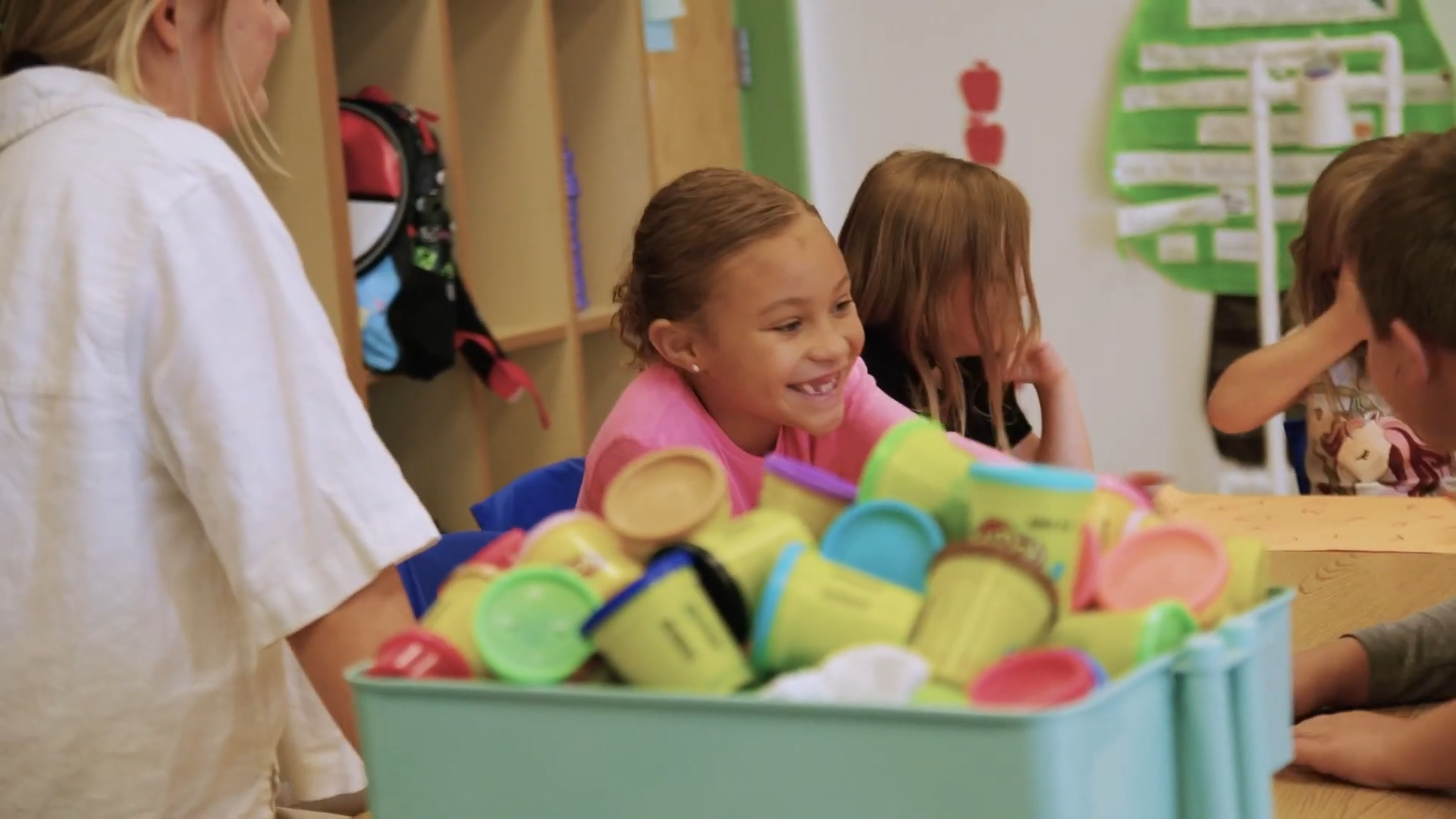Tips To Help Your Children Develop Literacy Skills
Improving literacy among students can be supported at home. Here are some ways to do this.
Featured Videos
Literacy Tips
Make Reading Important
Spend time reading every day. You can read with your child, or they can read independently based on individual skill. Reading together sends a strong message that reading is invaluable. Another way to stress the importance of reading is to visit the library often. Assist your child with borrowing books, let them see you borrowing books, and talk about your choices (authors, topics, book types). Showing interest in literacy will impact your child by helping them understand the importance of reading and writing. As a result, your child will follow your example – read, read, read!
Write Together
How can you write together with your child? Compose greeting cards, letters, emails, or a store list with your child watching/participating. Writing can help build letter/sound correspondence, and organizational skills and deepen their comprehension.
Include Them in Conversation
Talk to your child as an adult about topics such as family events, daily routines, trips, and holidays to include them and allow for ownership in the activities. Talking with your child builds a strong vocabulary that is crucial for oral language, reading, and writing.
Help Your Child With Homework
Parents do not have to be experts! You can support your child to think through how they should plan time for each task. Just being there and expressing interest lets them know they are supported. When schoolwork is important at home, students tend to do better at school.
Be Intentional
There can be many opportunities for talking, reading, and writing when you are intentional about creating teachable moments with your child. For example, you can plan family events with your child such as riding bikes, cooking, and gardening; you can sing together, make up stories or rhymes, and play word games. These activities will give you a wealth of opportunities to support your child with oral language, reading, and writing, all crucial for supporting literacy.
Follow Your Child’s Interests
Assist them with researching topics that interest them by searching for books and websites on those topics or consider signing them up for classes that cultivate their interests. Supporting their enthusiasm for these interests helps build background knowledge and increases vocabulary, both of which are necessary for reading comprehension.
Literacy Tip Videos
Learn more with some family literacy tips that will help make reading more central to your daily routine.
Ready, Read, Write, West Virginia – Family Literacy Tip #1
Literacy development is critical to your child’s overall development, and there are many ways this can be done. Singing, talking and playing word games with your child can increase their vocabulary.
Ready, Read, Write, West Virginia – Family Literacy Tip #2
One way to improve your child’s literacy skills is to link what is read in the book with real life. For example, if you read a book about the park, take your child to the park and point out the slides, swing sets, etc., that were seen in the book.
Grade Level: PreK – 5
Pillar: Comprehension
Ready, Read, Write, West Virginia – Family Literacy Tip #3
Set a positive example by establishing a daily routine of reading a story with your child. Children often take cues from the adults around them, and creating this routine may encourage your child to read separately. Never stop modeling the importance of developing literacy skills.
Grade Level: PreK – 5
Pillars: Fluency, Vocabulary
Resources for Parents & Guardians
Filter Resources By:
Ready, Read, Write, West Virginia – Family Literacy Tip #3
Set a positive example by establishing a daily routine of reading a story with your child. Children often take cues from the adults around them, and creating this routine may encourage your child to read separately. Never stop modeling the importance of developing literacy skills.
Ready, Read, Write, West Virginia – Family Literacy Tip #2
One way to improve your child’s literacy skills is to link what is read in the book with real life. For example, if you read a book about the park, take your child to the park and point out the slides, swing sets, etc., that were seen in the book.
Ready, Read, Write, West Virginia – Family Literacy Tip #1
Literacy development is critical to your child’s overall development, and there are many ways this can be done. Singing, talking and playing word games with your child can increase their vocabulary.
The Science of Reading for Families and Guardians
You can help develop your child’s literacy skills through the Science of Reading. Student Support & Well-being Coordinator Christy Schwartz explains that and more in this video.
Start With a Book | Reading Rockets
Learn how to start with a book to help your child build knowledge about a variety of topics in fun and interesting ways!
Read Aloud WV
Check out these trainings, opportunities to engage, and resources for Read Aloud in WV communities.
Reading Foundational Skills | PBS Learning Media (Student Site)
Learn about each type of reading foundational skill, and explore lessons, videos, games, and activities.
Promoting Preschoolers’ Emergent Writing | NAEYC
Find ways to promote writing with your preschooler at home.
Literacy Resources for the Middle and High School Students
Discover several ways to get teens reading, again or for the first time.
Learn about your Child’s Reading Development | National Center on Improving Literacy
Learn about your child’s reading development.
Leaders of Literacy Episode 47: Strengthening School Readiness From Infancy (Spotify)
Tune in to learn how you can help support language and literacy skills with your infant or toddler.
Everyday Steps to Reading and Writing | NAEYC
Gain knowledge on how to include everyday steps to improve your child’s reading and writing.
ELA Writing | PBS Kids Learning Media
Support your child’s writing and explore lessons, videos, games, and activities.
Tips for Teaching Your Child About Phonemes
Reading Rockets resource that provides information for families when working with phonemes.
Source:
Home reading | Five from Five
Five from five resource that provides the critical elements of reading to children at home.
Effective teaching of reading | Five From Five
Learn the Indicators of good practice that shoud be implemented at your child’s school during reading instruction.
Finding the right books | Five from Five
Learn how to determine books just right for your child.
12 Ways Parents and Teachers Can Encourage Early Literacy and Language Skills
Engage in these family and community-friendly resources to increase literacy.
Ready, Read, Write, West Virginia – Campaign Introduction
Ready, Read, Write, West Virginia is an initiative created by the West Virginia Department of Education to increase literacy proficiency for all students. It is rooted in research and based on the belief that students can learn to read proficiently with effective reading instruction.
Source:











